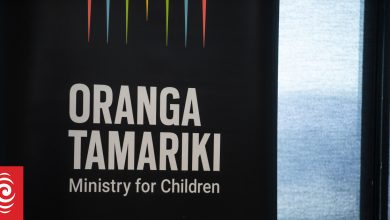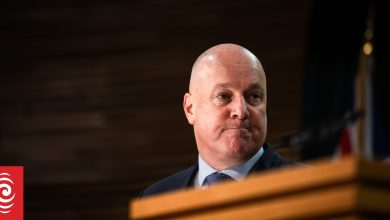Media Minister had ‘more than enough time’ to find solutions – opposition
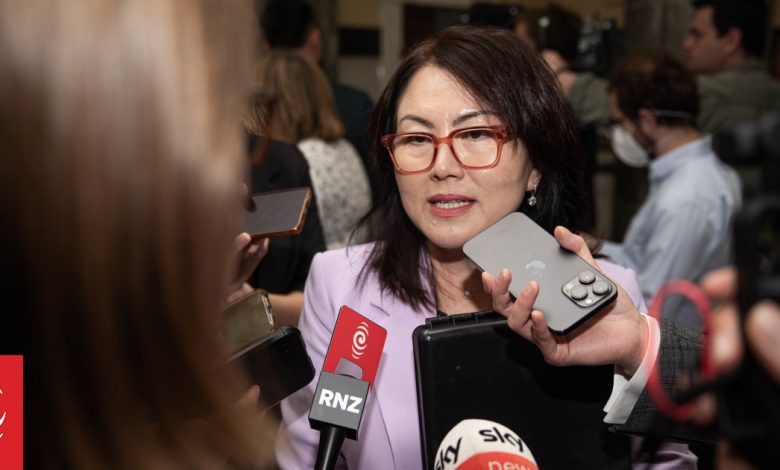
Facing questions over any proposals for supporting the media industry since they took office, the prime minister and media minister could only point to decades-old economic trends and Labour’s legislation.
The Labour and Green Parties say the government must take the shrinking of the sector seriously and come up with solutions – for the sake of democracy.
It follows confirmation by Warner Brothers Discovery that all Newshub operations would be shut down in July, and TVNZ confirming the axing of several shows, including Fair Go and Sunday.
Media and Communications Minister Melissa Lee – who has been the party’s spokesperson on the sector since 2017 – said a Cabinet paper she had been working on for at least a month has been written, but she was unwilling to give any details – including whether Cabinet has seen it.
“I don’t think this particular paper will, you know, help in the situation of the Newshub announcement today,” she said.
Prime Minister Christopher Luxon said the government’s role was to help media companies to innovate and “the reality is we’re dealing with a big macro consumer trend”.
“Yeah, look, I mean, there are things that she’s going to continue to look at, that, as I said, can support the industry to evolve and to modernise.”
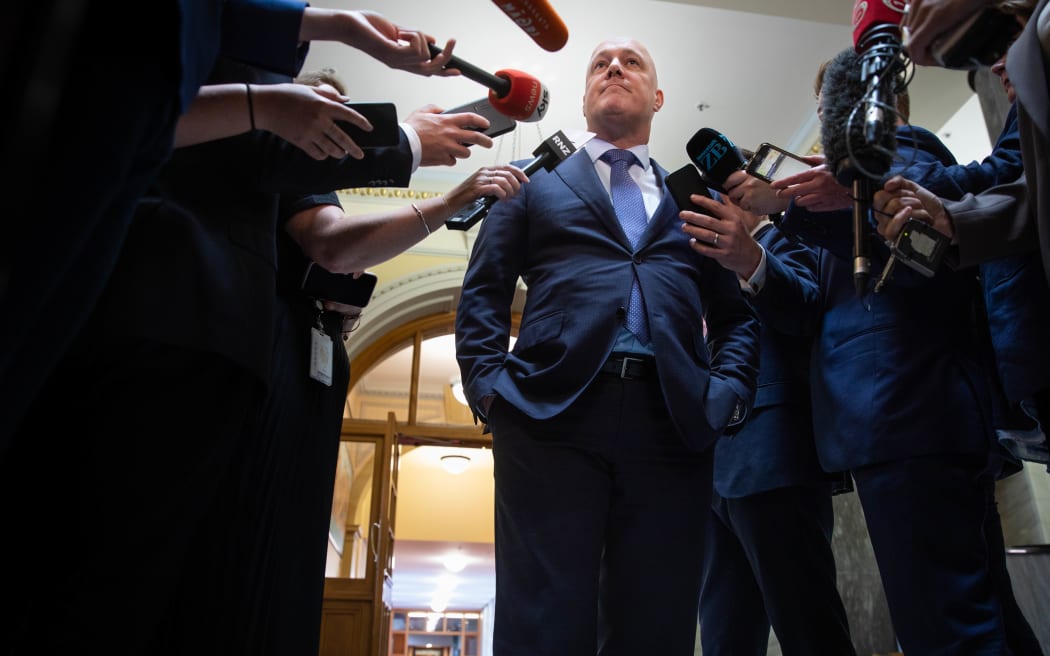
He said the government’s thoughts were with impacted staff and their families, but when he was asked for any action or proposals the minister had taken to Cabinet, he would only point to trends and a Labour-led piece of legislation still before select committee.
“What we’ve discussed is actually the macro trends that are going on within the media industry both here in New Zealand and also abroad, and the bargaining bill that’s going through with the digital platforms,” he said.
Lee has previously said she opposed the Fair News Digital Bargaining Bill in its current form. The select committee report is due to be presented to Parliament on 29 May.
Put to him the minister had so far presented nothing that could immediately affect the industry, he said: “I am well aware that we’ve got legislation that’s often outdated and framed for old broadcast media … there are things that we can do on the margins that may update that or improve that but likewise the reality is we’re dealing with a big macro consumer trend”.
“The role of the government here is to support an industry to be able to innovate itself – and media companies around the world, some are innovating and some have adapted and built brand new business models and found really creative and clever ways to change the way they do things to deal with those changing consumer habits and demands.”
He did not provide examples, and said the government had not received “any specific proposals from anyone asking for any particular assistance or any particular help”, which they would entertain if necessary.
Lee said tackling the problems facing the media sector was a priority for her – even if it had not been included in the government’s first 100-day plan, or its latest quarterly plan.
“Well, I think it is in terms of the way that I’m actually working … it is in my plan and all I can talk about is my plan,” she said.
“There is a process and what I’m actually telling you is that it is my commitment to actually work through this process to actually deliver a sustainable and more modern and more innovative industry.
“It might seem like it is very slow but there is actually a process, but what I can actually tell you is there is no one real answer for the industry – and it is something that everyone really needs to actually work together.
“I’ve been working through to try and actually talk to the sector ever since I’ve become a minister and actually trying to find a solution and one of the ways that I have actually mentioned is the review of the Broadcasting Act and looking at the sector in general, and trying to find a solution to modernise and innovate.”
Lee said it was a “terrible day” for the industry and she was “gutted” for those affected, but “having said that, this is not something that is actually new … it’s been coming for some time, and it’s not just in New Zealand it is a global issue and the media needs to transition”.
Opposition calls for action
Labour leader Chris Hipkins said the government needed to take the problem seriously.
“It’s not just a nice to have, it’s actually vital for democracy. It’s vital that we have a range of media sources, that we are challenged as politicians, that the work we are doing is constantly being scrutinised and that there are always people digging into what we are doing as politicians.”
Lee had “more than enough time” to come up with solutions, he said.
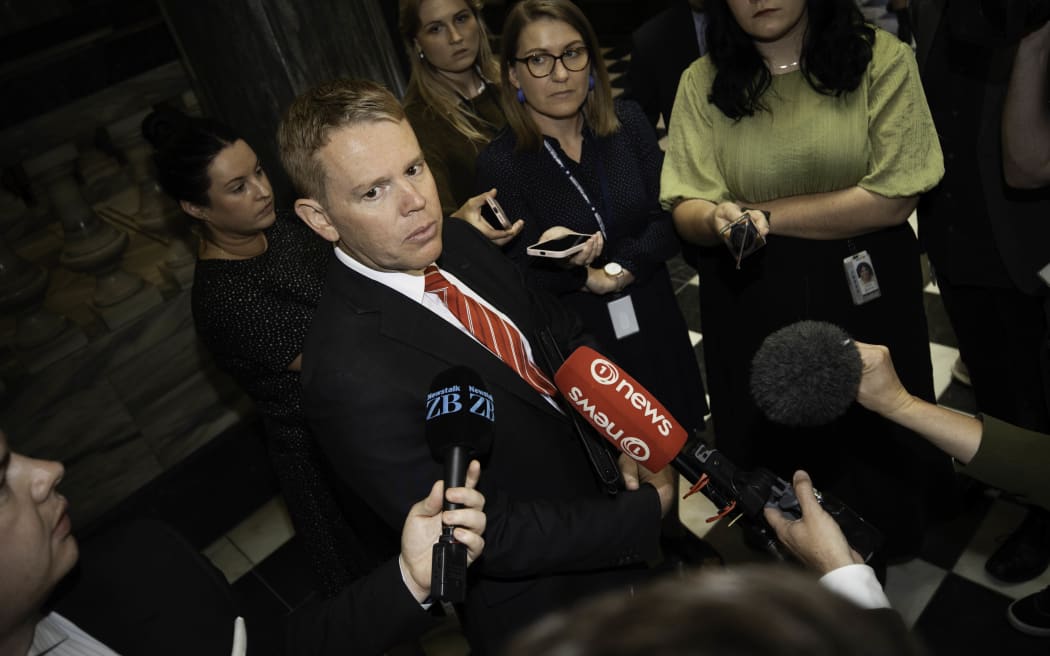
“And it’s been evident for pretty much the entire time that this government has been in office that this is urgent. It’s actually critical to the democratic functioning of New Zealand and they’ve had more than enough time to come up with some ideas about what to do about it.
“There are no single answers to it but there are some pieces of the puzzle right there. There is market failure now that shows that the people who are assembling the news are not getting the revenue that flows from that – it’s being captured elsewhere by big multinationals like Facebook, like Google, and so on.”
He said the Fair Digital News Bargaining Bill would help to fix that problem but the government was not progressing it, and while it was not the only answer, the government needed to show leadership.
“They should have started working on, by now, other options around that. New Zealand On Air is one of the options as a stopgap measure while further work is done, for example, to ensure that some of the media sources we’re seeing disappearing can continue in the meantime whilst a more fundamental look at how we make sure that news is independently viable in the longer term takes place.”
He paid particular tribute to Newshub, saying across its nearly 35-year history in New Zealand it had been a constant disruptor in the media landscape in a positive way.
“They’ve been the kind of indie outfit challenging the establishment quite often and I think that it’s an absolute tragedy for media diversity in New Zealand, to see the decision that’s been taken today.”
Greens co-leader Chlöe Swarbrick said the government did have a responsibility to do something to address the problem.
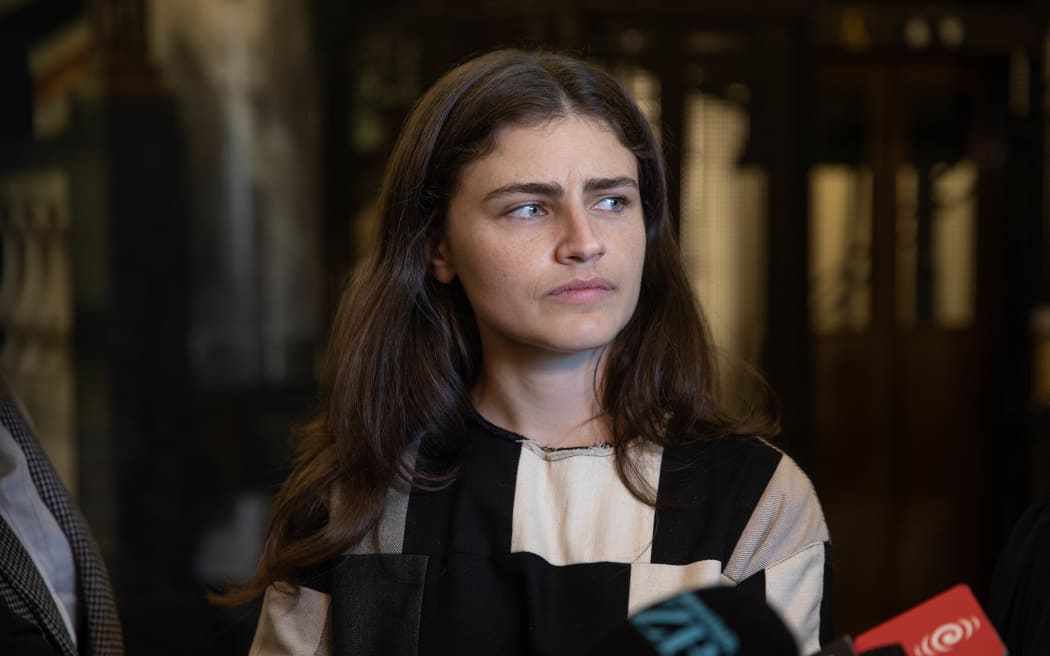
She suggested direct funding for the sector, and also pointed to the Fair News Digital Bargaining Bill.
“We’ve heard for a really long time from academics and researchers and those involved in the sector that we need to see long-term sustainable public funding for journalism, and unfortunately we’ve seen over the past few years that such attempts have been deeply politicised.
“We’re really keen to reach across the aisle and see the Broadcasting Minister lead a cross-party piece of work here because all of us are the poorer when we see public interest journalism downplayed – or, in fact, attacked or politicised.”
She said she would also support increased funding for NZ On Air, and more should also be spent on supporting student journalism.
There appeared to be no long-term strategy for supporting public interest journalism in New Zealand, she said, and her heart went out to all the journalists and producers affected by the decisions of the past few days.
“This is devastating for the media landscape in this country and the flow-on effects that will have to our democracy with regard to holding politicians to account.”
According to the news on Radio New Zealand

